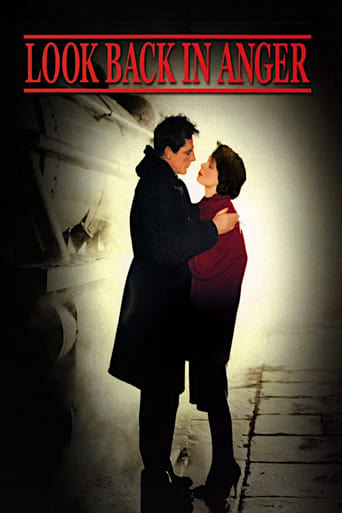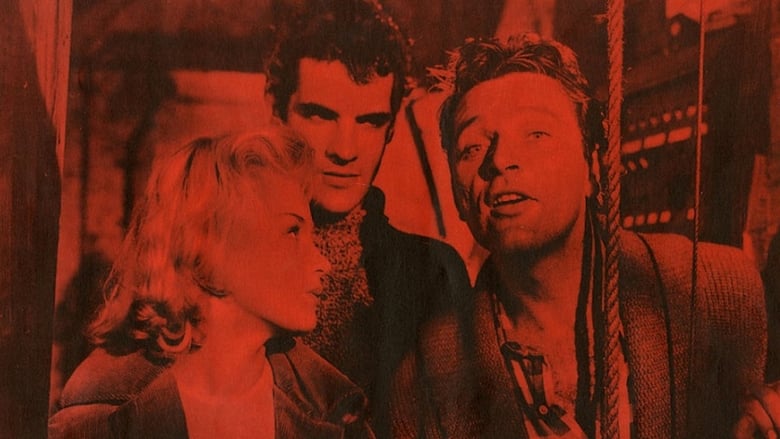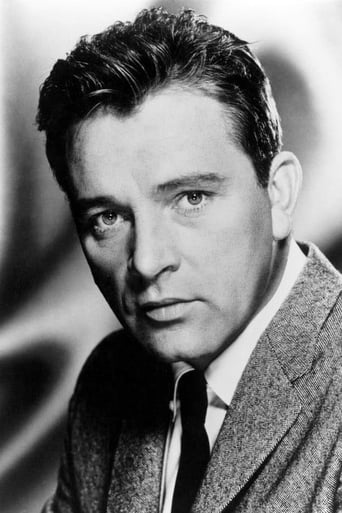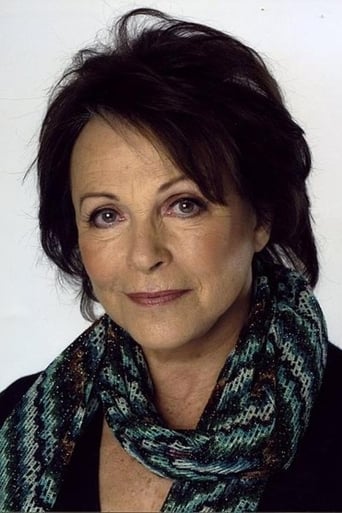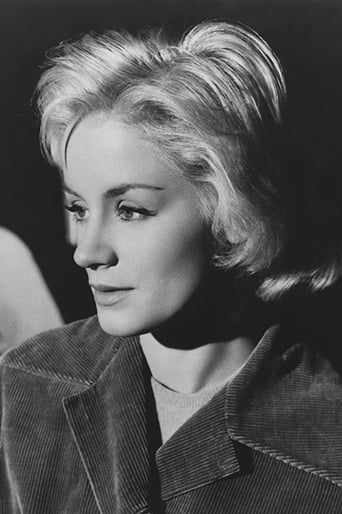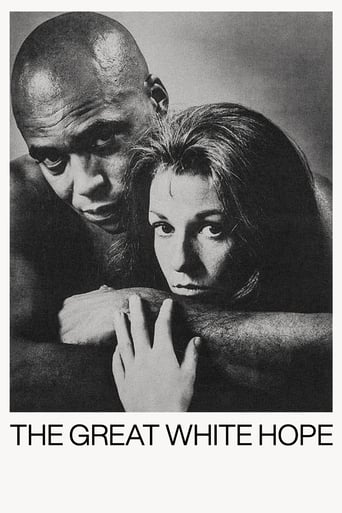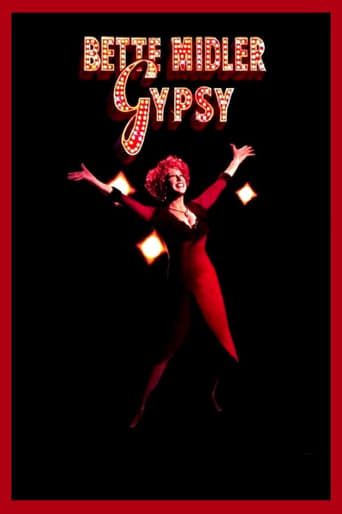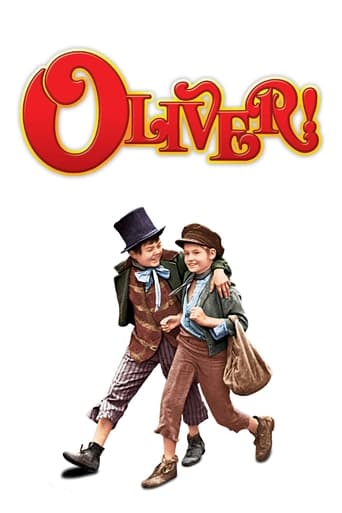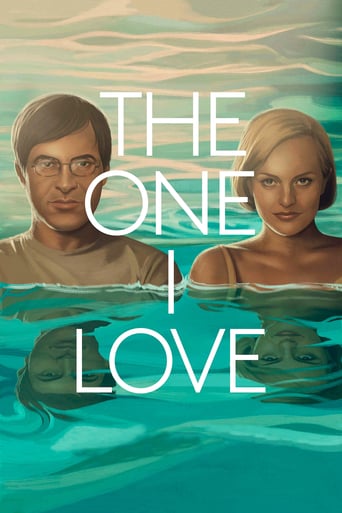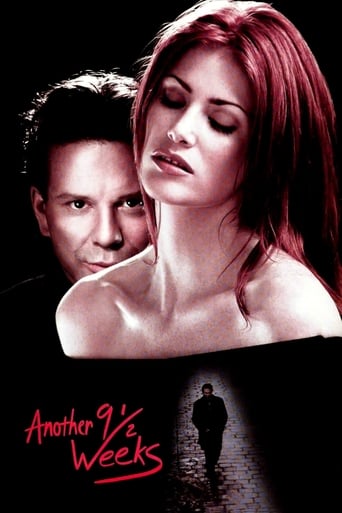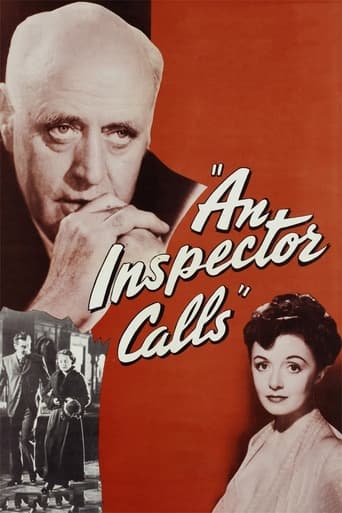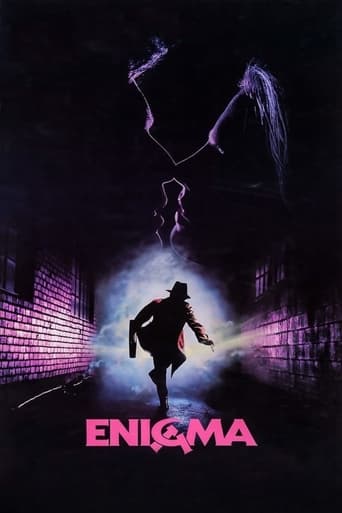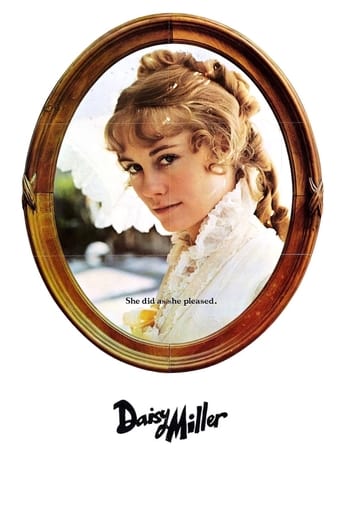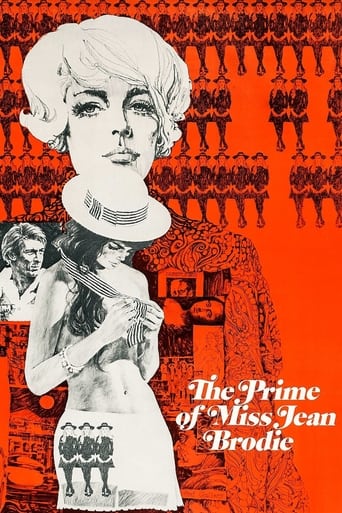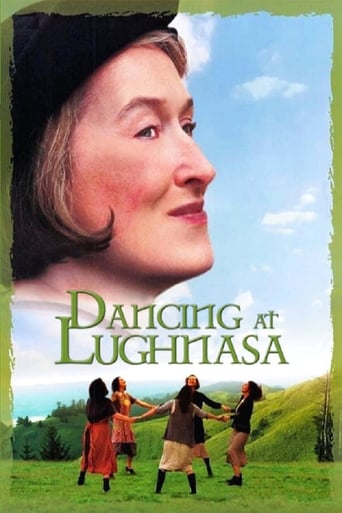Look Back in Anger (1959)
A disillusioned, angry university graduate comes to terms with his grudge against middle-class life and values.
Watch Trailer
Cast


Similar titles
Reviews
In truth, there is barely enough story here to make a film.
The best films of this genre always show a path and provide a takeaway for being a better person.
This film is so real. It treats its characters with so much care and sensitivity.
The movie really just wants to entertain people.
Based on the play by John Osbourne this classic from 1959 not only features one of Richards best performances,but is a very early introduction to the string of so called kitchen sink dramas of the 60's. Films like Saturday Night Sunday Morning,which brought a young Albert Finney to a greater audience.These films focused on angry young men rebelling against their working class roots and the world.Look Back In Anger tells the story of sweet seller Jimmy Porter(Richard Burton)who is angry with his life,the world and the traditions and values of the time.Most of all he is angry with himself for marrying the love of his life upper class Allison(Mary Ure)and forcing her to live in a way she is not used to.He loves her very much and she him but he can't stop his feelings of hate for the way they live overwhelm him at times.They share a small flat with friend and boarder Cliff Lewis(Gary Raymond).Cliff is the referee who always tries to stop the couples massive and emotionally draining arguments(brought on by the sight of Allison doing everyday tasks which Jimmy knows she shouldn't really be doing given her background).After discovering she is pregnant but is afraid to tell him Allison on the advice of her close friend Helena(Claire Bloom)leaves to stay with her parents.Although he has always hated Helena Jimmy soon finds himself beginning a passionate affair with her,partly out of mutual desire and as a way of relieving his pain over Allison.Emotionally draining with raw and powerful performances especially Richard and Mary,Look Back In Anger is a must see with strong support from Edith Evans as an old friend of Jimmy and Donald Pleasence as Hurst who makes the market stall holders life hell.
Interestingly, for a film celebrated for its unrelenting realism, 'Look Back in Anger (1958)' is entrenched in theatricality. From the compact cast, the cramped sets, and the verbose dialogue, I guessed (correctly, as it turned out) that Tony Richardson's film was surely adapted from a play. John Osborne's production of "Look Back in Anger" initially premiered in 1956 to considerable success, and the characteristic harshness of his writing, exposing the unpleasant underbelly of working-class life, spawned the phrase "angry young men" to describe Osborne and other British playwrights who explored similar themes. Richardson's film triggered what is often described as a British New Wave, a movement of important (or perhaps self-important) films that explored pressing political issues and, in particular, the social alienation borne from class distinction. Easily the best example I've come across so far is Jack Clayton's 'Room at the Top (1959),' which obviously followed in the footsteps of this picture. The film's strong, intimate cast includes Richard Burton, Claire Bloom (of Chaplin's 'Limelight (1952)'), Mary Ure, Gary Raymond and Donald Pleasence.Over the years, many films have explored the anger and prejudices of disturbed and alienated men. But, even in the most powerful of these such as Scorsese's 'Taxi Driver (1976)' and 'Raging Bull (1980)' the filmmaker distances himself from his characters' prejudices. 'Look Back in Anger' doesn't seem to do this. Whether it's Osborne's dialogue, or Burton's phenomenal execution, everything Jimmy Porter says comes across as a genuinely bitter attack on contemporary society. When Porter questions the worth of his wife, or cruelly disparages her middle-class parents, the attack seems to be coming from the author himself {my research tells me that Osborne's play was strongly autobiographical, based on his failed marriage to Pamela Lane this offers some explanation for the apparent bitterness}. In fact, so venomous is Porter's tongue that wife Alison is afraid to reveal to him that she's pregnant, and, shockingly, he appears not to care, in any case. Only towards maternal-figure Mrs Tanner (Edith Evans) does he show genuine compassion, his hostility is only amplified by her passing.Richard Burton, however tied to the stage is his performance, nonetheless commands the screen in every scene. His anger is so pure and undiluted, made all the more shocking because he otherwise speaks with the eloquence of an educated and civilised man. If its dialogue is undoubtedly tied to the stage, then 'Look Back in Anger' achieves realism through its more cinematic traits. The film was photographed by Oswald Morris a talented cinematographer who also worked with, among others, Stanley Kubrick, John Huston and Carol Reed who exquisitely captures the shadowy decadence of working-class London. There's a grittiness to Porter's squalid surroundings, sometimes he almost seems trapped in a noirish urban backwater. Stylistically, the film closely resembles Lean's 'Brief Encounter (1945)' probably because both have brilliant scenes set on a railway platform, amid the smoke of a idle locomotive. Subsequent "kitchen sink" dramas also owe their visual aesthetic to Morris' work here, just as British cinema owes its brief late-1950s revival to Osborne and Richardson.
In 1956 John Osborne stood the British theatre world on it's ear with his rage filled play Look Back in Anger. The Empire was backpedaling, and Osborne's play was a loud broadside to the establishment and the genteel upper crust drawing room plays that dominated the London stage. It was the opening salvo of British generational discontent that would go beyond the stage to film and music and create a social revolution. In England the era of question authority had arrived.Jazz loving, university educated Jimmy Porter seethes with anger over everything around him. Living in a cold water flat with his wife Alison (Mary Ure) and friend Cliff he goes into rages at the drop of the hat lashing out cruelly at the housemates. In one instance he viciously tears into Alison wishing she would have a child and that once bonded to her hoped it would die. When Helena (Claire Bloom) , a school friend of Alison comes to visit she is treated in the same fashion. A pregnant Alison decides to leave as does Cliff and Porter takes up with Helena, his angry young man persona toned down slightly but only for the moment.Look Back in Anger echoed a real sense of urgency for it's day. Osborne's Porter speaks for a generation and class that was invisible and powerless at the time. Anger revels in the sun setting on the Empire and those who created it. The open air push cart market that Porter works in serves as a symbolic battle field where corrupt authorities act like martinets and practice veiled racism. Half a century later though this iconoclastic work has lost a large amount of its controversial steam.As Porter, Richard Burton seethes from start to finish. Every word he utters cuts. Burton's magnificent voice gives powerful expression to Osborne's words but his overall performance is one over the top non-stop ugly whine. There are only tid bits of humor and joy in his character that moves from one rage to the next. This gets tired fast since Porter is unable to channel his anger to change good or bad. It is just one long hissy fit. As lovers and targets Mary Ure and Claire Bloom stand around looking shell shocked most of the time. Their performances are lifeless as they endure tirade after tirade from Jimmy with battered understanding. By film's end there is no character left to respect or performance to admire. It's like listening to your neighbors argue for two hours.Anger was the "kitchen sink drama" archetype but is clearly inferior to most similar films that followed such as Saturday Night and Sunday Morning, The Loneliness of the Long Distance Runner, The Sporting Life and The Entertainer, which Osborne also wrote and had the same director (Tony Richardson). In those works the characters had more dimension than the howling Burton and his comatose victims and a basic theatrical understanding of comedy relief which in Look Back in Anger goes down the drain fast.
"Look back in Anger" was not an instant hit as a play.It took the transmission by ITV of a truncated version starring Richard Pascoe as Jimmy Porter to bring it to a wider less theatrically sophisticated audience and,by extension,popularise it.This action was also incidentally the intention of John Osbourne who,along with the others in the so - called "Kitchen Sink" movement was to reclaim the theatre for ordinary working people by writing about lives and situations that had some relevance to their own. The play was to some extent autobiographical as far as it reflected Osbourne's first marriage,but Osbourne himself was no Jimmy Porter , rather he invented Porter as a character to give himself a platform on which to articulate those views that no one would listen to if he personally was to express them. Once Porter was accepted as a "voice",Osbourne could happily say whatever he liked(and frequently did) without necessarily believing in any or all of it. The form of the play was reassuringly traditional - nothing of the Beckett or Brecht about it - but the content was viciously "anti - theatre". With Osbourne's known admiration for Music Hall and Variety it is tempting to see parallels between Porter and the great Tony Hancock. Both inveterate snobs,prone to stream of consciousness dialogue,world class ranters living in seedy digs with subordinate pals.Both these great creations talk the talk but ultimately fail to walk the walk. In using Richard Burton for the movie version Tony Richardson made a fatal - if understandable - error.Too physically beautiful,too "Actorish",paradoxically too well - known,too recognisably not an embittered University Man running a market stall in order to remain true to his principles and prejudices.And once your lead has been compromised everything else around it begins collapsing. Taking Porter away from his soapbox and out onto the street further weakens the film.The efficacy of the play is to a large extent dependent on the claustrophobic gloomy set. Mr Osbourne was not a poet of the working - class,he was a poet for the working - class,not the same thing at all.He may have had hated all that he believed England had become,but like Jimmy,he chose to do nothing about it.Instead,through his mouthpiece,he chose to bellow clever words that appealed to the Armchair Revolutionaries of half a century ago and still appeal to their counterparts today. The trouble is the same snouts are still deep in the trough and the same people are still out in the cold.And it's still deeds,not words,that count.

